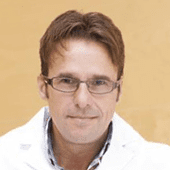Titles and Affiliations
Research Professor, Department of Medicine and Life Sciences
Universitat Pompeu Fabra
Research Director, Consortium Mar Health Park of Barcelona and Hospital del Mar Institute of Medical Research
Director, Preclinical Research Program
Research area
Developing novel therapies that utilize the power of the immune system to treat breast cancer.
Impact
Normal cells respond to damage by halting cell division, putting the cells in a state of cellular senescence. Similarly, malignant cells will become senescent, a process called senolysis, in response to some therapies. While senescent tumor cells no longer proliferate, they remain molecularly active and produce factors that promote aggressiveness in neighboring tumor cells. Dr. Arribas’ team is focused on developing novel strategies that redirect the immune system against senescent cells. They found that cellular senescence can exert either anti- or pro-tumorigenic effects depending on the stage of the tumor and the immune cells present in the immediate tumor microenvironment. In fact, studies indicate that senescent cells promote the anti-tumor immune response at early stages of tumor formation while inhibiting it at later stages. Dr. Arribas’ group previously identified the factors and mechanisms that mediate the pro-tumorigenic effects and have designed a novel therapeutic strategy to exploit their findings, thereby eradicating senescent cells and increasing the efficacy of breast cancer therapies.
Progress thus far
In the past year, Dr. Arribas’s research focused on understanding how to safely remove senescent cells—cells that stop dividing but remain active—from early-stage breast tumors. While many treatments push tumor cells into senescence to stop their growth, these cells can also send signals that help the tumor come back. Removing senescent cells can sometimes worsen this effect and help the tumor to grow. Dr. Arribas and his team discovered that an immune regulating molecule called CCL2 plays a key role in this problem: The removal of senescent cells causes CCL2 levels rise which supports tumor growth by attracting immune cells to the tumor microenvironment. Using antibodies against CCL2, they could block its action and reverse the effect on tumor growth. Other studies are focused on how to specifically recognize and eliminate senescent cells, a particularly challenging endeavor due to the fragility of senescent cells and difficulty isolating them.
What’s next
Research by Dr. Arribas and his team provides a novel, safer strategy for treatment: first, triggering senescence to stop cancer growth, then carefully removing the harmful cells without creating new risks. They have identified a similar molecule, CCL3, that might work like CCL2 and are developing antibodies to block both CCL2 and CCL3 for future studies. In tandem, they are also developing antibodies that detect a protein called p16, which is often found in senescent cells. These antibodies recognize p16 when it’s present on the senescent cell surface, making them a promising tool to identify and eliminate senescent cells directly. By identifying the factors and mechanisms behind the undesired effects of senolysis, Dr. Arribas hopes to provide a new avenue to enhance the use of senolytic drugs and expand the number of anti-tumor tools for treating breast cancer.
Biography
Dr. Joaquin Arribas is the Director of Preclinical Research Program at Vall d’Hebron Institute of Oncology in Barcelona, Spain, where he leads a group focused on the study of growth factors, growth factor receptors, and the proteases involved in remodeling the cell surface. He is a member of the Editorial Board of the Journal of Biological Chemistry, Translational Oncology, and CDB Protein Systems.
Dr. Arribas is member of the Spanish and American Societies of Biochemistry and Molecular Biology and President of the Committee for the Evaluation of Cancer Research project at the Institute of Health Carlos III, a major public funding agency in Spain.
Dr. Arribas completed his undergraduate studies in biochemistry at the University of Madrid, where he subsequently worked on the regulation of the catalytic activities of the proteasome and received a PhD in biology in 1991. Sponsored by a fellowship from the Spanish Ministry of Education and Science, he joined Memorial Sloan Kettering Cancer Center in New York as a postdoctoral fellow to work with Dr. Joan Massague (1992-1996) on the proteolytic processing of transmembrane growth factors. In 1997, he joined the Oncology Department at Hospital Vall d’Hebron as a staff scientist and was promoted to lead the oncology research department in 2001. Dr. Arribas’s research has been recognized by the European Molecular Biology Organization (EMBO), which honored him with a Young Investigator Program (YIP) Award. Also, Dr. Arribas received the Beckman Coulter Award conferred on the Best Young Spanish Investigator in Biochemistry and Molecular Biology.






